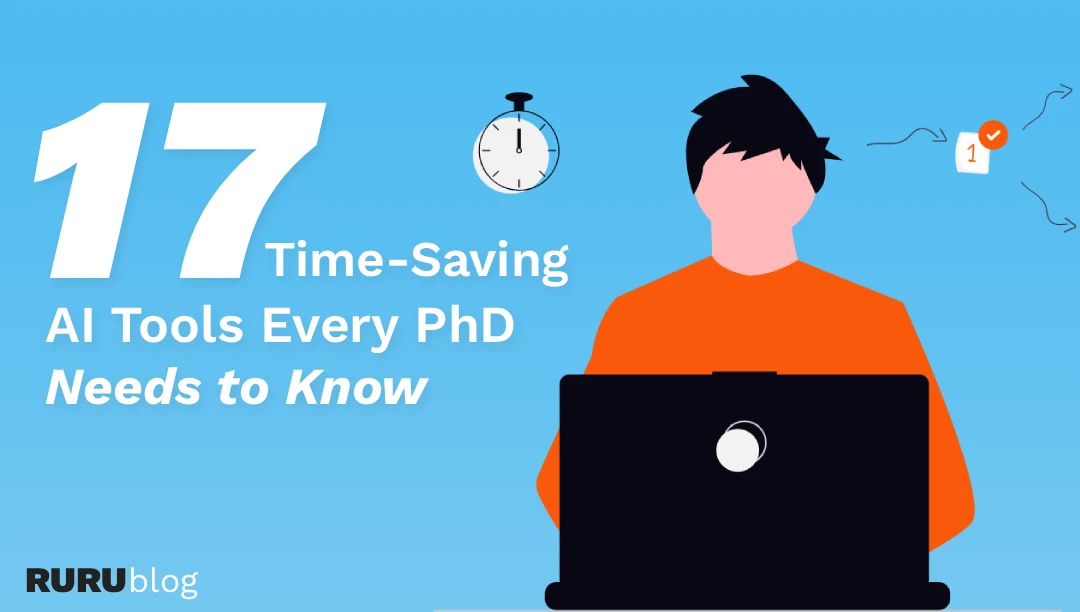Blog • Posted on Aug 4, 2025
17 AI Tools Every PhD Student Needs to Save Hours Each Week
Doing a PhD can feel like working a job, juggling a side hustle, and running a marathon all at once. With reading, writing, publishing, and teaching all competing for your time, it's no wonder so many PhDs feel overwhelmed.
Fortunately, the explosion of AI tools for researchers has made it easier than every to streamline your workflow. From task scheduling to curating citation collections, these AI tools for PhDs save you time and focus on what truly matters.
Of course, not every tool is worth your time. That's why I've pulled together 17 AI tools I’ve personally tested, recommended to mentees, or heard other PhDs swear by. Some save minutes. Some save your sanity.
Table of Contents

We Help Working PhDs Finish Faster & Publish More Through:
- 1-On-1 Mentoring - Real people. Real results.
- Professional Editing - Our team of expert editors will get your manuscript publication-ready.
- Online Courses - Learn invaluable presenting & writing skills.
AI Tools to Help You Stay on Top of the Literature
Keeping up with the latest research is half the battle in a PhD. These AI tools for research help you stay on top of the literature with ease.
1. ResearchRabbit
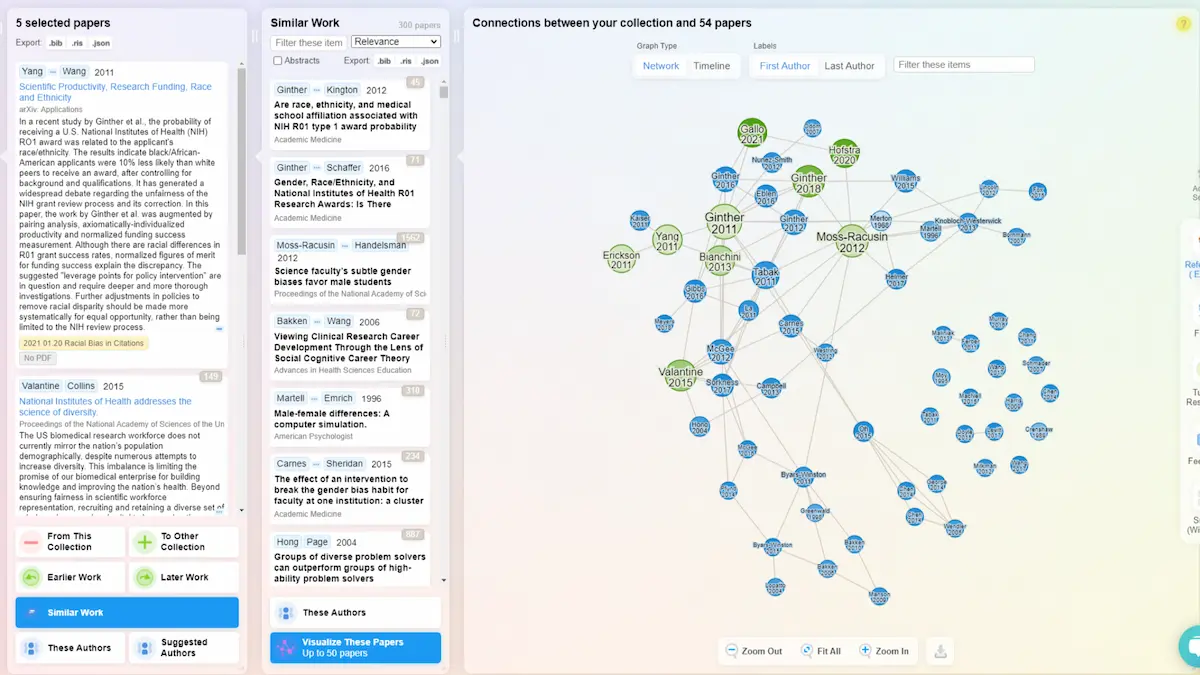
ResearchRabbit helps you build a network of related papers based on one or more sources. It shows how ideas connect over time, like a visual research map.
This makes it easier to find key papers you might have missed. It's also useful when you need to recall that one reference that doesn't come to mind.
But where ResearchRabbit shines is in conducting literature reviews. If you've ever written a review, you know the rabbit hole is deep (pun intended).
One paper leads to another that leads to another. Now you're 5, 6, even 7 layers deep and you've completely lost sight of where you began.
The visual reference prevents you from losing track of how papers connect. You can also explore co-author networks—something that separates ResearchRabbit from other AI referencing tools like LitMaps or Connected Papers.
Price: Free
Account required: Yes
Librarian, Aaron Tay, has a more in-depth review of ResearchRabbit that's worth a read if you're on the fence between AI tools for research literature.
2. Scite.ai
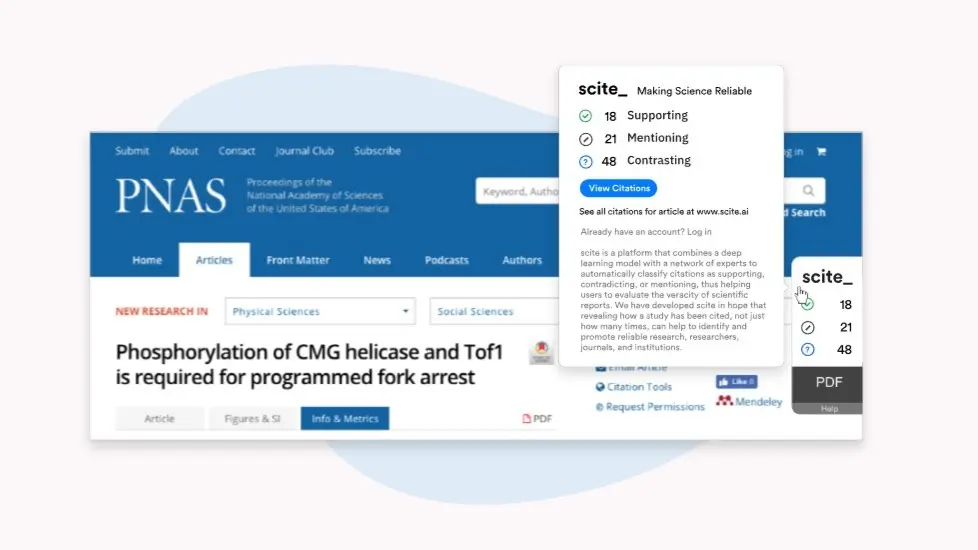
Scite.ai shows you how papers have been cited by others. It tells you if they were supported, mentioned, or disputed. This helps you check if a source is still trusted in the field. You can use Scite to back up your claims or avoid weak studies when writing your discussion.
It can be used standalone or as a Google Chrome extension. The extension helps you quickly judge a papers' reputation. The search tools answers research questions with short, referenced summaries.
Price: Freemium (basic from ~$8/month; personal plans ~$12/month)
Account required: Yes
3. Consensus.app
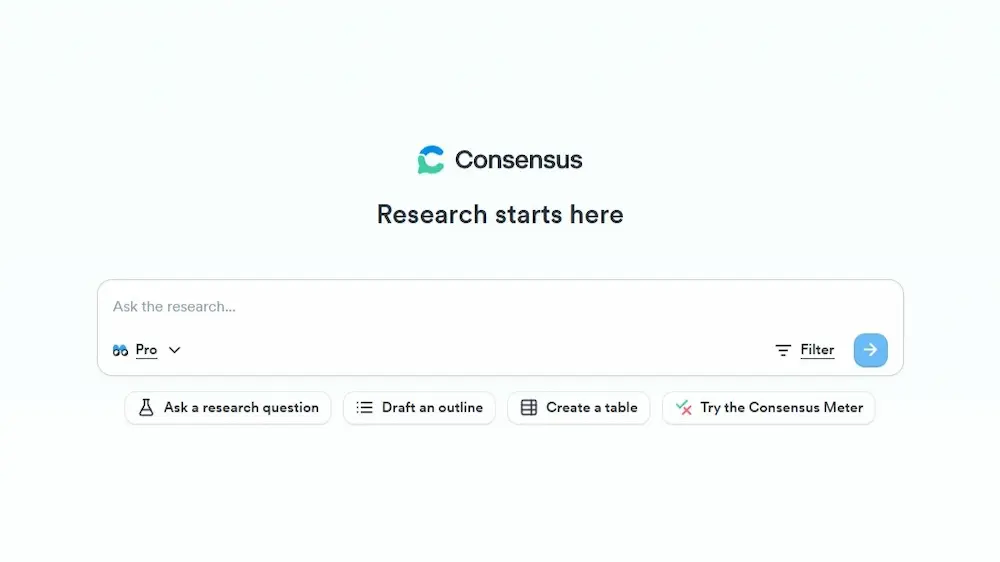
Consensus.app answers research questions with concise, evidence-based answers drawing from peer-reviewed studies. It's a fast way to fact-check theories or start a lit review without deep diving into dozens of papers.
I asked the same question in both Scite and Consensus. Consensus gave a clearer, more detailed answer, but your experience may differ. Unlike Scite, it doesn’t have a browser extension, but that may not be a dealbreaker.
Price: Freemium (free tier available; Premium around $12/month or $108/year)
Account required: Yes
4. Scholarcy
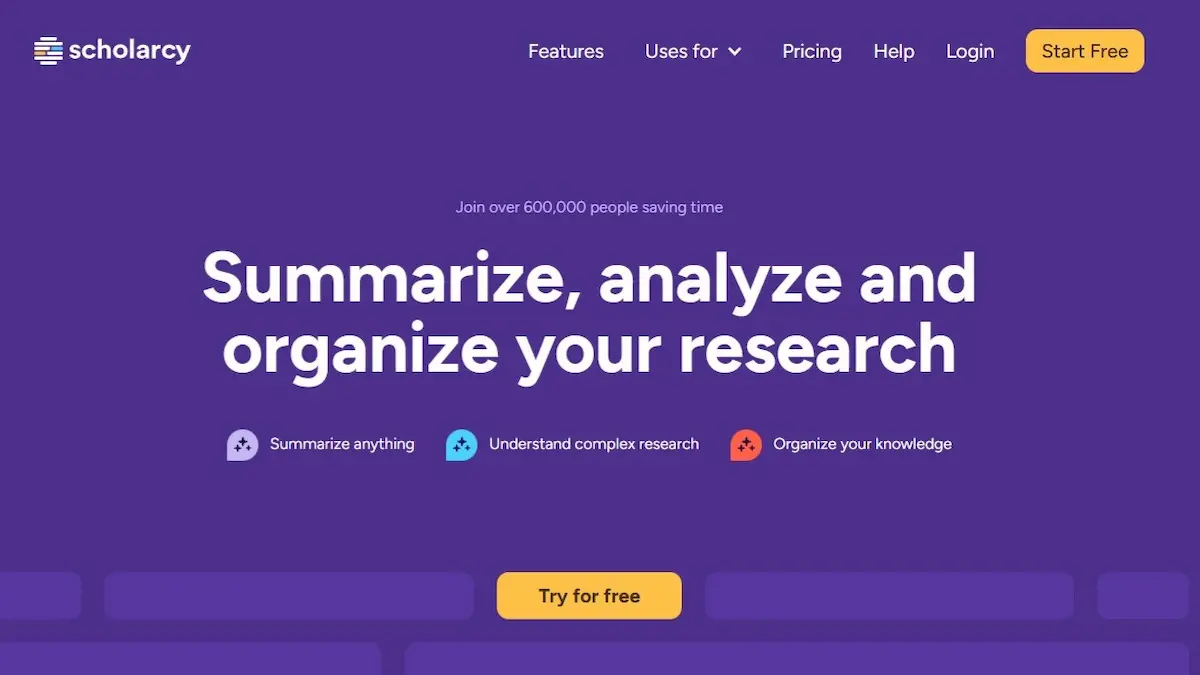
Scholarcy reads long PDFs and creates structured summaries, flashcards, and highlights key data. You can skim smarter, grasp big papers quickly, and build outlines without reading word for word.
In other words: it saves you time!
Price: Freemium (browser extension free; Library plan ~$5/month)
Account required: Yes
Best AI Tools for Academic Writing, Editing & Publishing
Effective writing is paramount in the academic jungle of publish or perish. These tools utilize AI to help turn that messy draft into a polished manuscript.
5. ChatGPT

If you've somehow made it this far without hearing of ChatGPT... welcome back from your fieldwork in the Mariana Trench. OpenAI’s AI assistant can draft emails, explain complex concepts, translate jargon, summarise papers, and help you outline or rewrite your writing. It’s like a research assistant who never sleeps, complains, or needs coffee (every supervisor's dream!).
Don't copy and paste straight from ChatGPT and hope no one notices. AI is a tool, not a shortcut. You'll get better results when you guide it with smart prompts and include your human input.
Price: Free (GPT 3.5); Paid (GPT 4.0)
Account required: Yes
6. Trinka
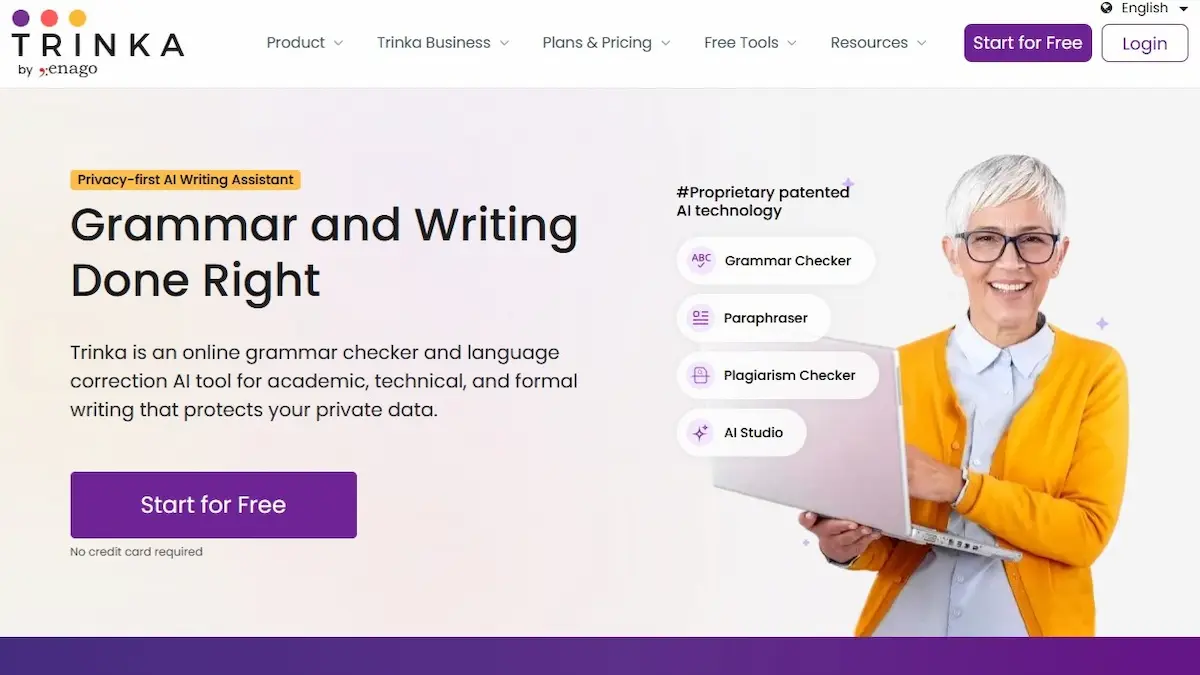
Trinka focuses on academic grammar, tone, and style. It checks sentence structure, vocabulary, and gives suggestions true to formal research writing. It’s especially helpful for non-native English speakers tightening a journal draft.
Price: Free basic plan; Premium from ~$6.67/month (or about $80/year)
Account required: Yes
7. Writefull
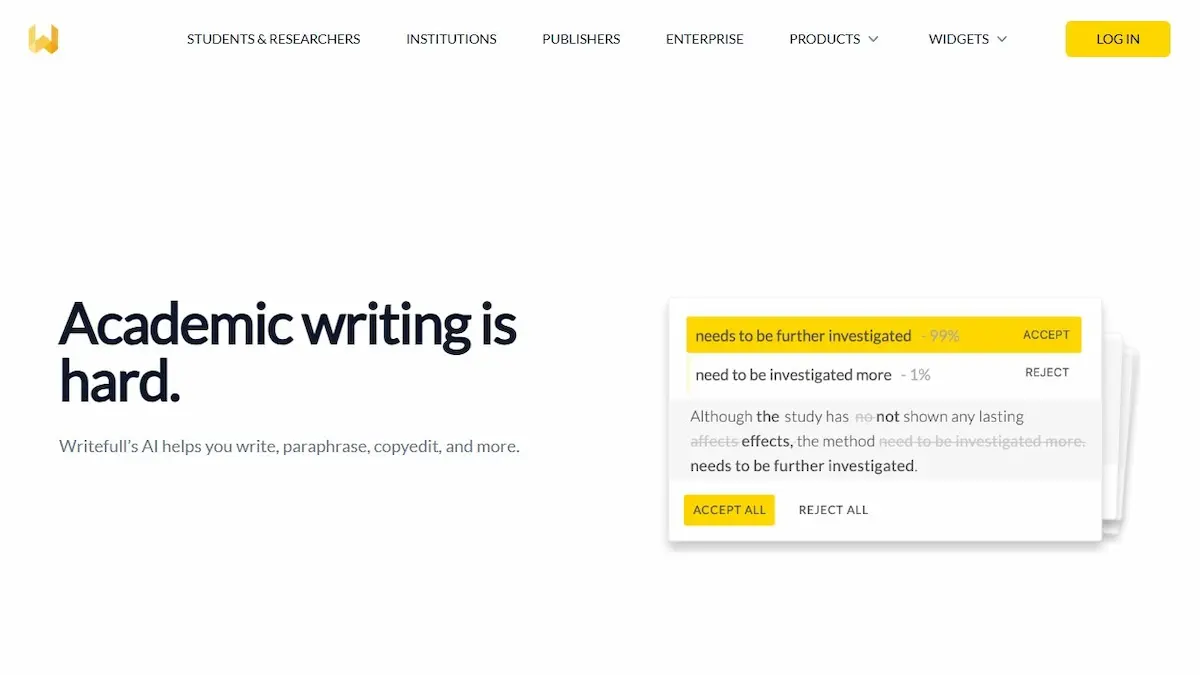
Writefull compares your writing to millions of academic texts and offers real research-aligned feedback on wording, frequency, and phrasing. It integrates with Word, Overleaf, and Chrome.
If you use Grammarly Premium, it might be worth trying Writefull. Its models are trained on academic papers, so the feedback is better suited to research writing, not just everyday English.
Price: Starts with a free quota; Premium for full access (~$65–150/year depending on package)
Account required: Yes
8. Grammarly
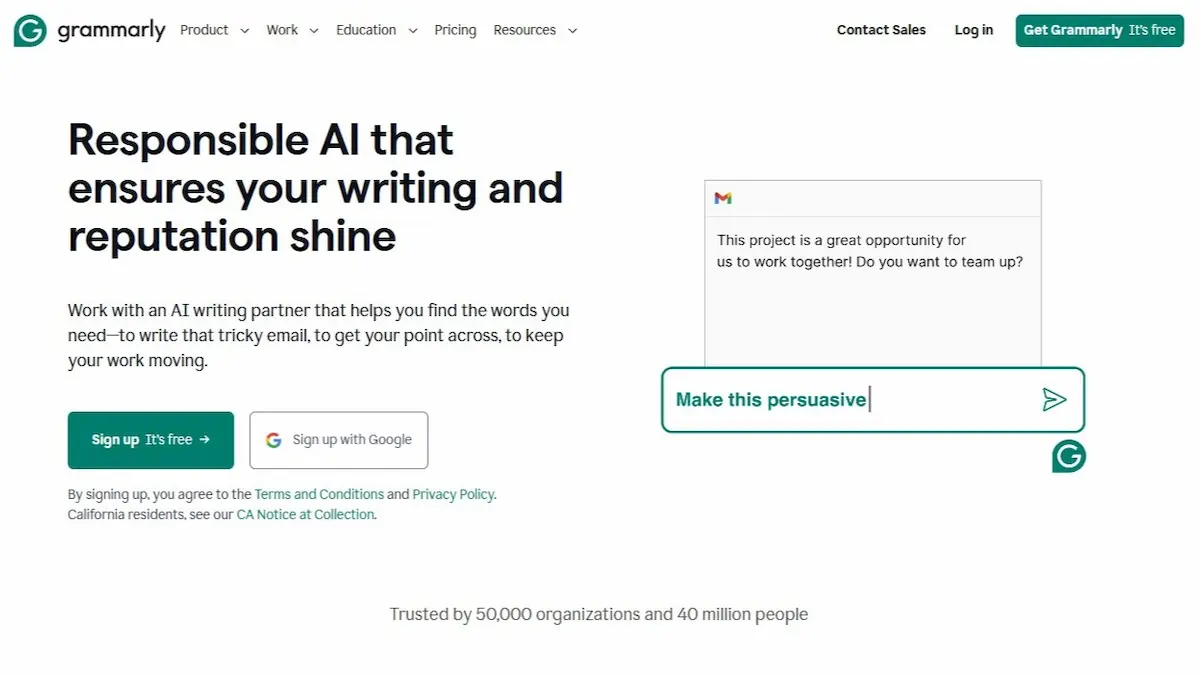
Grammarly checks grammar, tone, and spelling across apps and your browser. It’s fast and lightweight, great for emails, proposals, or early drafts before switching to more academic tools.
Price: Freemium (free basic tier; Premium optional)
Account required: Yes
9. Hemmingway Editor
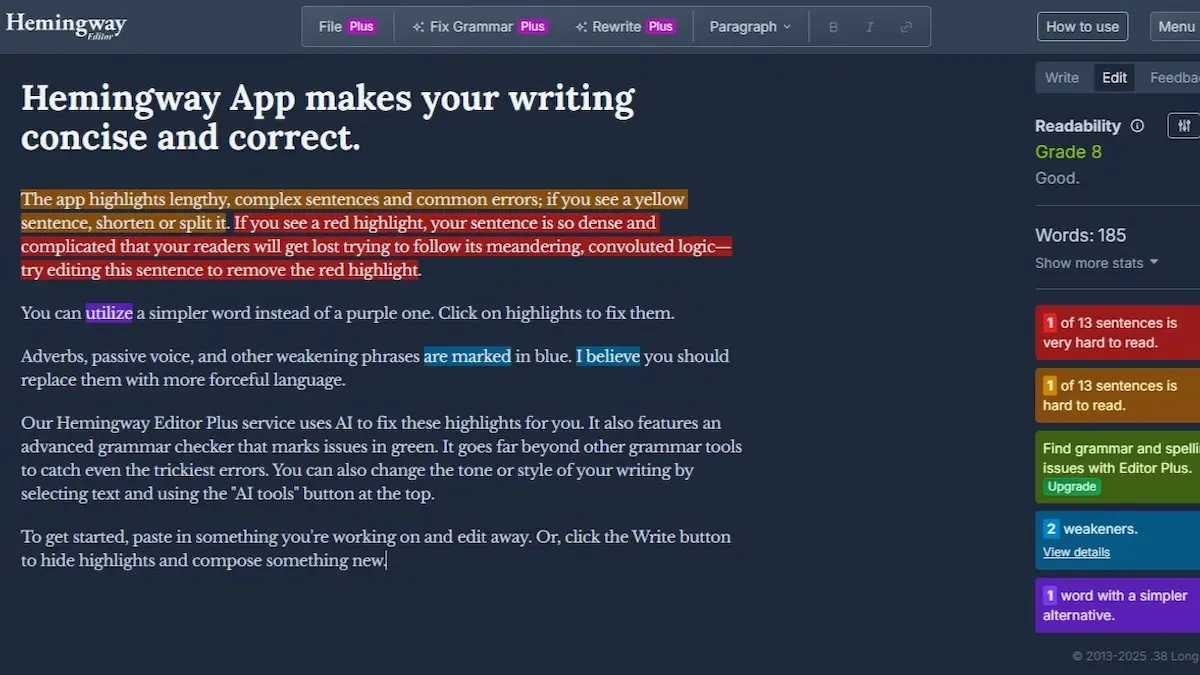
Hemingway Editor highlights long or complex sentences and weak wording. It helps you simplify academic language for abstracts or presentations aimed at non-specialist audiences.
This AI tool for researchers has become mandatory in my workflow.
Fun fact: I used the Hemingway Editor to keep this blog post easy to read!
Insider tip: Writing a paper? Make sure to raise the reading grade from default or it will flag almost every sentence as 'hard to read'.
Price: Free online version; paid desktopp app (~$20)
Account required: No (for free use)
Smart Tools for References & Research Notes
You read hundreds of papers in the course of a PhD. It's essentially impossible to remember every reference by heart. These AI tools take the stress out of referencing and keeping notes.
10. Zotero + A.R.I.A
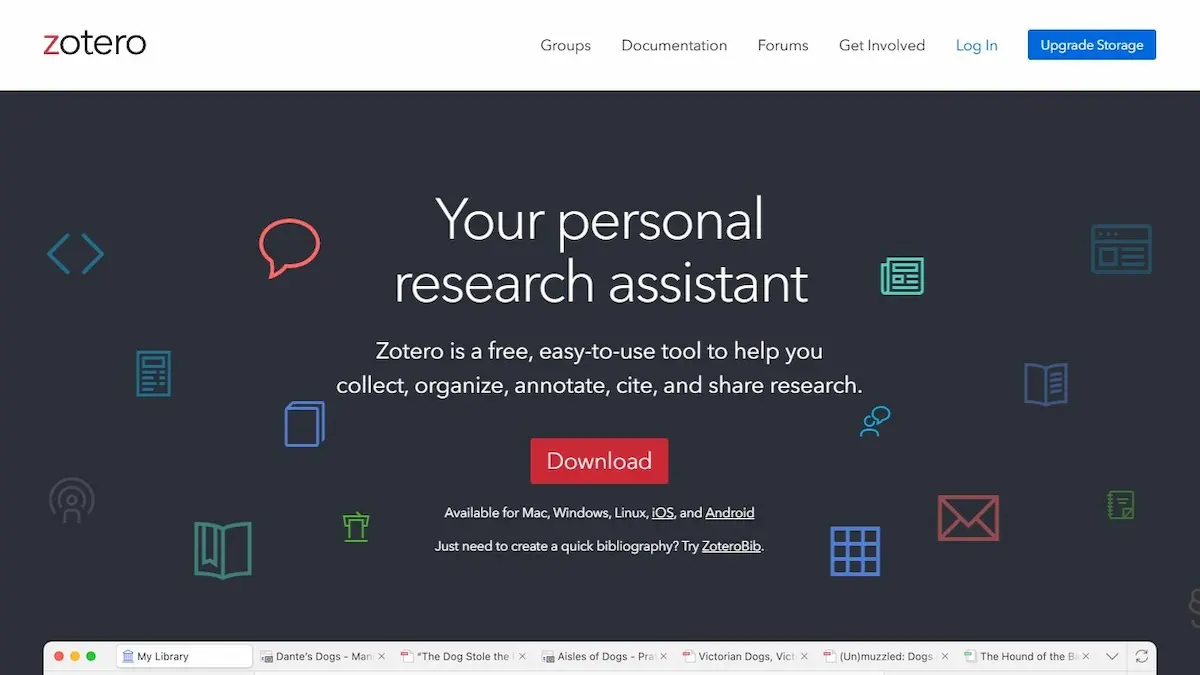
Zotero is an open source citation management software that automatically generates references and bibliographies in your text editor. You can create collections, add notes, and import PDFs directly into Zotero from the browser. It even works with Google Docs!
Since Zotero is open source, many tools have built handy integrations with it. ResearchRabbit, for example, lets you import your Zotero library and build interactive research webs from your saved papers.
But if you want to get the most out of Zotero, you'll want to integrate AI directly into its UI using the A.R.I.A (Aria) Plugin.
Aria adds a ChatGPT-style sidebar right inside Zotero, so you can ask questions about the papers in your library without leaving the app. It can summarise, explain, or compare articles for you, making it a priceless companion for lit reviews.
You’ll need your own OpenAI API key to use it, but setup is simple and well worth it if you use Zotero regularly.
Price: Zotero is free with optional paid storage upgrades, but the OpenAI API Key is a paid service
Account required: Yes
11. EndNote Click
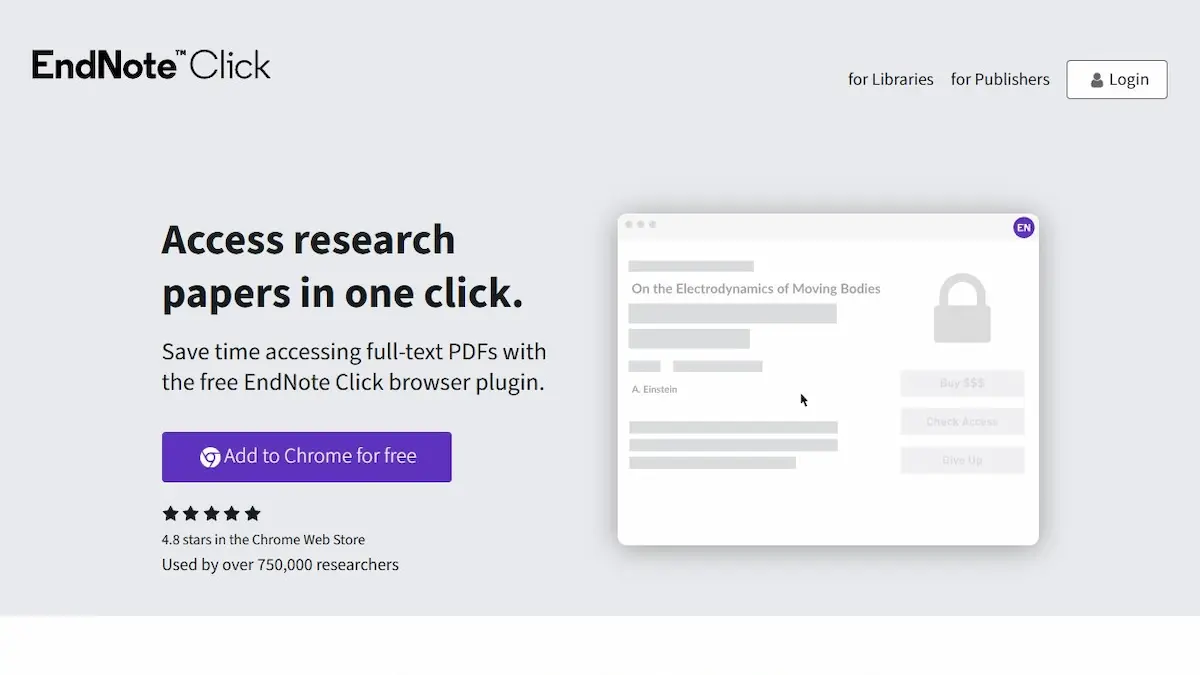
How many times have you had to manually enter your institutional login to access a PDF?
EndNote Click is a browser extension that finds PDF access via your institution without manual logins. It saves files to a cloud locker and integrates with EndNote or Zotero.
Price: Free; Premium locker storable available
Account required: Yes (for premium sync)
12. Obsidian + AI Plugins
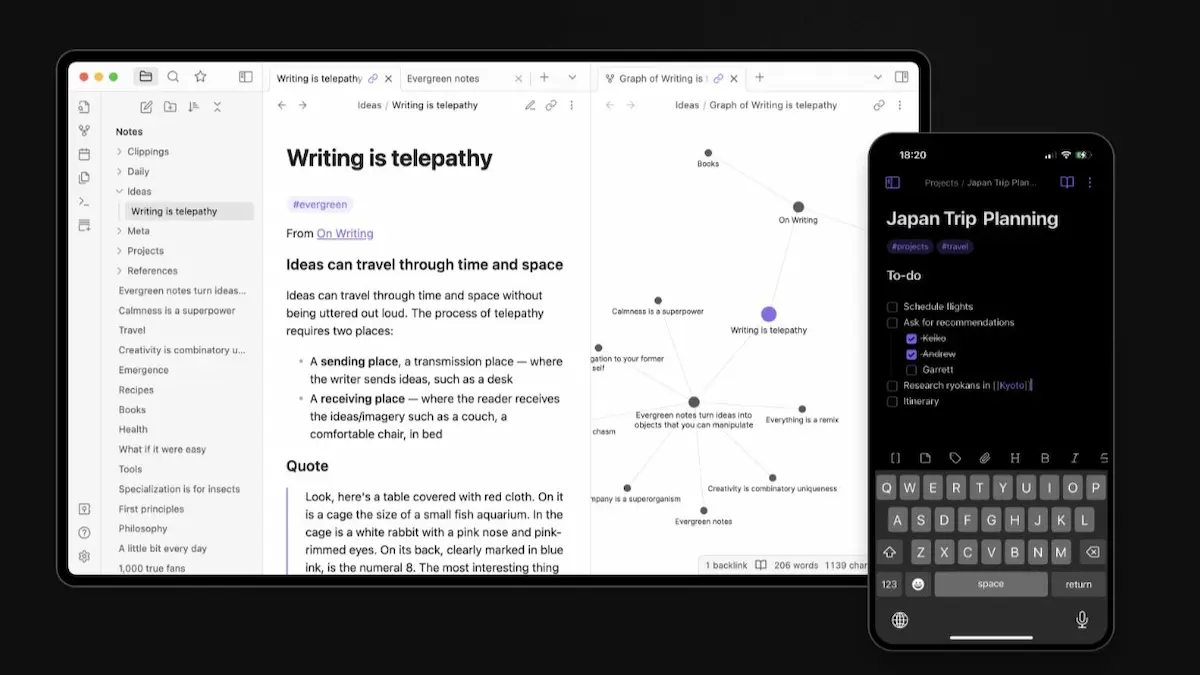
Obsidian is a powerful note-taking app built around a system of backlinks that help you see connections between ideas. Many researchers use it to build an organised web of notes that grows over time and supports deep thinking, writing, and paper planning.
Obsidian has hundreds of community plugins, including several that integrate AI directly into your workflow. For example, the Text Generator plugin connects to OpenAI and lets you summarise, rewrite, expand, or brainstorm text within your notes. You can highlight messy ideas and ask the AI to polish them, or generate outlines based on your research topics.
You’ll need an OpenAI key (or similar), but once it’s set up, the the benefits are huge. It’s especially helpful when you're drafting a thesis, writing papers, or trying to stay on top of complicated literature.
Price: Free core app; optional paid sync or publish features
Account required: No for basic use; yes for cloud features
Time-Saving AI Tools for Busy Researchers
Juggling work, family, and your PhD? The part-time PhD has its pros and cons. Whether you're full or part time, these tools take the guesswork out of task scheduling and time management.
13. Motion
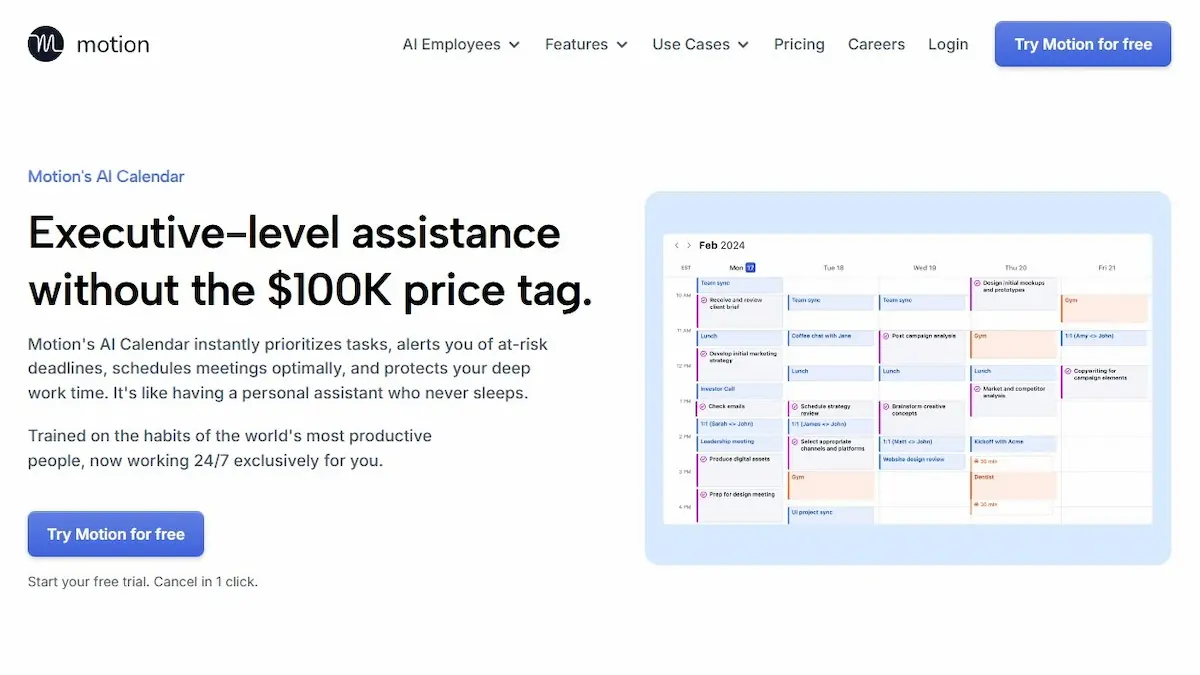
Motion is an AI calendar and task planner. You tell it what tasks you have and when they’re due. It auto‑schedules them into your day, shifting things around as needed.
You'll get the most out of Motion if you break larger tasks down into their subtasks. This is where Goblin Tools shines (next on the list).
If your calendar is already packed with work & family obligations and you struggle to find time for your PhD, managing your time allocation with an AI tool like Motion is almost a necessity.
Or your could get 30 ways to transform your research writing, straight from me to your inbox - entirely free.
Price: Paid (starts around $25/month)
Account required: Yes.
14. Goblin Tools
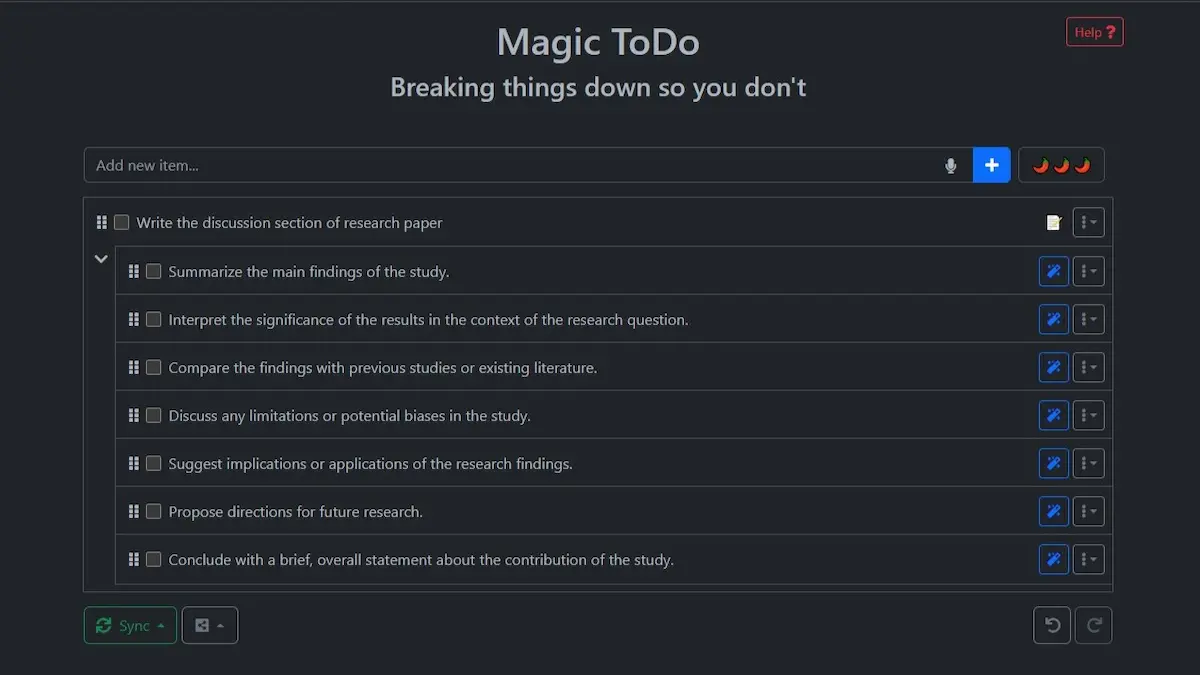
Goblin Tools has easily become one of my favourite AI tools for researchers in 2025. It takes big goals and splits them into step-by-step micro‑tasks. It takes the guesswork out of where to start. Use it to plan a writing session, then feed the tasks into Motion for scheduling.
Price: Freemium (free basic tier)
Account required: Yes.
15. Otter.ai
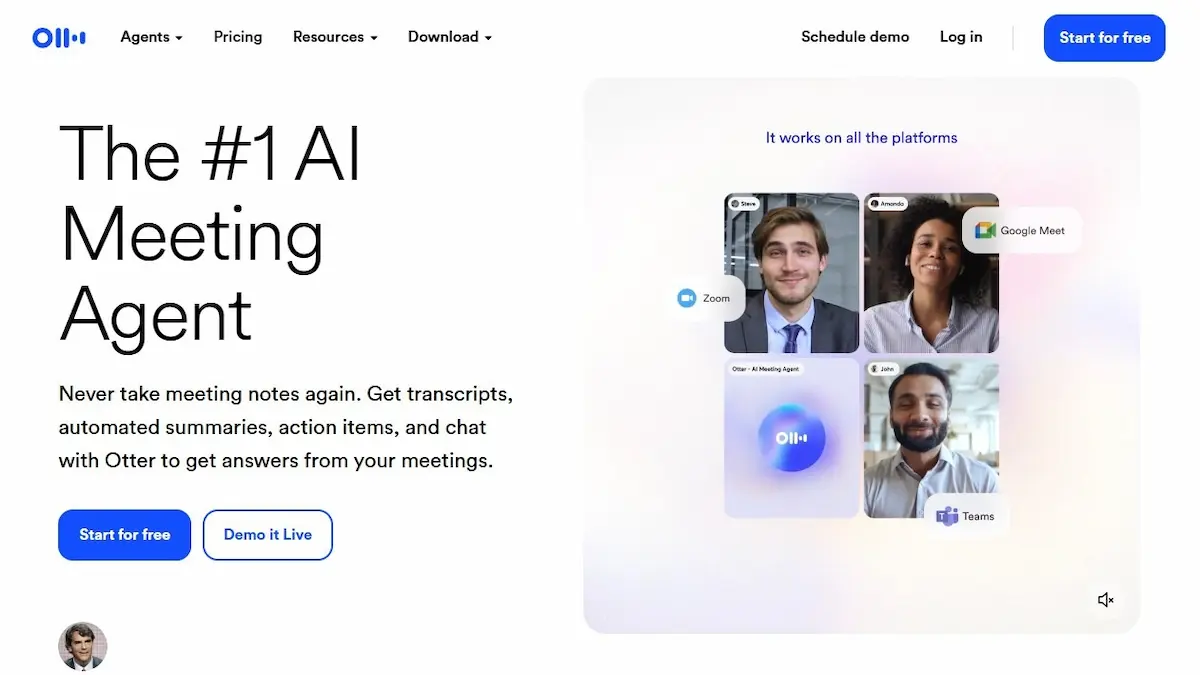
Otter.ai records voice meetings, seminars, or talking while walking, then turns them into searchable transcribed text and summaries. It also captures presentation screenshots when synced with Zoom or Teams.
Price: Free max 300 min/month; Pro ~$17/month or ~$100/year
Account required: Yes
AI Tools for Teaching & Presentations
Love it or hate it, teaching and presenting are part and parcel of the PhD experience. Thankfully, some AI-nerds have developed some pretty badass tools to help you create stunning visuals - even if you don't have a creative bone in your body.
16. Beautiful.ai
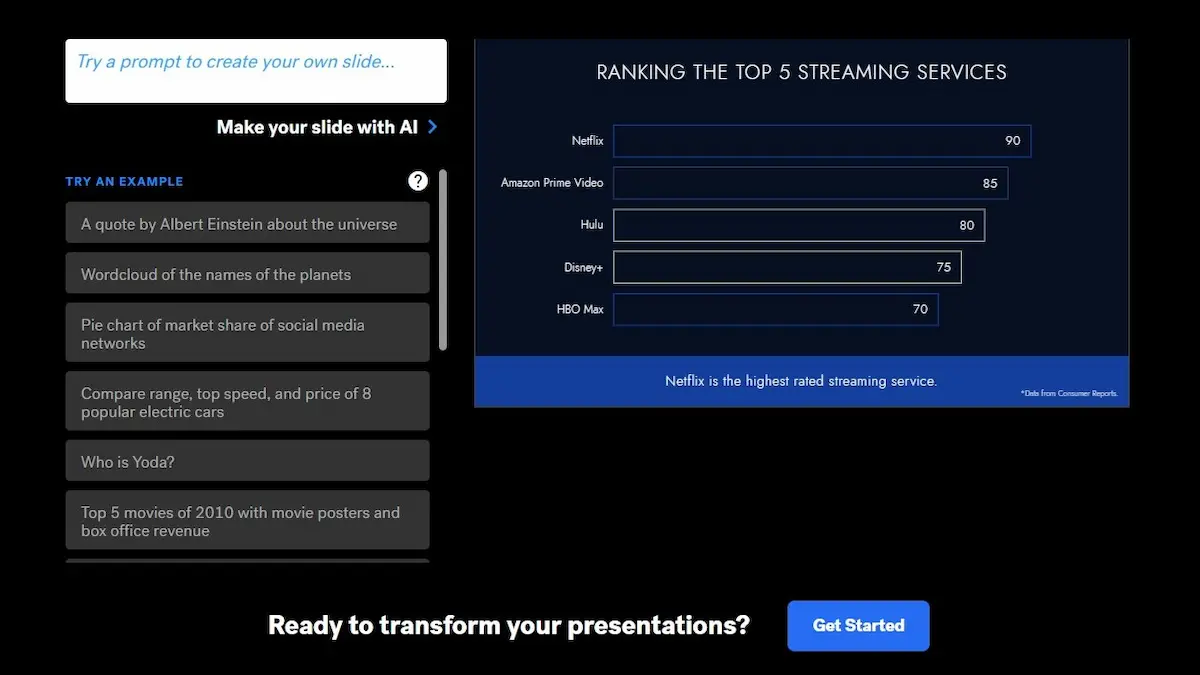
Ever spent 10X longer making slides than rehearsing them?
Beautiful.ai helps you make polished slide decks in minutes. It uses smart templates and layouts so you don't waste time formatting. Ideal for conference talks, teaching, or update slides.
Price: Freemium (limited free tier), paid Pro plans
Account required: Yes
17. Gamma

Gamma blends slides, visuals, and text in a smart, narrative-style format. It offers clean, modern presentation formats without design hassles. Use it to create research pitches, progress overviews, or lab teaching summaries quickly.
Price: Freemium (free tier with basic features; paid for advanced export/features)
Account required: Yes
What AI Can't Do
It's easy to get caught up in the AI hype and lose sight of fundamentals. AI should supplement your research workflow, not replace it.
AI tools are great at rewording text you've already written or expanding on your ideas, but they won't tell you if your paper is missing a clear storyline. That's the kind of nuance that only a human can provide.
You could spend hours perfecting a version of your paper that ultimately goes nowhere. An experienced eye will spot when you're wasting time and help direct your effort toward what actually matters.
AI doesn't know the social intricacies of your field, the dynamic you have with your supervisor, or the industry secrets of the journal you're submitting to. Only an expert can do that.
The academic world is full of unspoken rules, politics, and strategic decisions. AI can't tell you when to push back on a reviewer, how to navigate co-authorship, or whether your current trajectory is sufficient to land you a job. You still need someone who's been there.
If that's the kind of support you're after, book a free call with one of our mentors.
FAQs
Can journals detect if I used AI to write my manuscript?
At this stage, most journals don’t use AI detectors in their submission process, but that doesn’t mean they won’t in the future. It's more likely that editors and reviewers will notice your writing feels generic, lacks depth, or doesn’t sound like it came from a human. AI isn’t banned, but obviously AI-generated content is a red flag for research journals.
Do I need to disclose the use of AI in my research paper?
Yes, if AI tools were used to generate, edit, or analyze content in your manuscript, most journals ask you disclose it. This is typically done in the acknowledgments or methods section. If you're unsure, check the journal's author guidelines.
Is it plagiarism to use ChatGPT for a research paper?
It can be. But it's less about plagerism and more about erroneous content. If you copy and paste blindly, you risk submitting unoriginal or even incorrect work. Many AI tools don’t cite their sources unless prompted, and they're known to sometimes invent facts. Use them as assistants, not ghostwriters.
What’s the best AI tool for academic writing in 2025?
It depends on your goal. Consensus is great for quick literature insights. Writefull offers field-specific grammar help. Zotero plugins streamline reference management. But no tool does it all. Pick a few that boost your individual workflow and considering working with a mentor to make sure you're getting the most out of them.
Can AI replace my PhD supervisor?
No. AI can help with surface-level editing and content suggestions, but it can’t advise you on the publishing landscape, tell you when your draft is off-track, or coach you through career decisions. That’s where human insight matters most. If you want that kind of support, and your supervisor isn't providing it, consider using an online mentoring service like RURU.
Conclusion: Using AI Wisely in Research
AI has become a powerful tool for researchers, simplifying tasks like editing, summarizing, and citation management. However, it's not a replacement for critical thinking or expert input. If you're not careful, you can end up with a paper that seems acceptable on the surface but falls over at the faintest push.
If you're aiming to publish high-impact papers from your PhD, you'll still need the guidance of someone who understands the process inside and out. That’s where mentoring can really make the difference. At RURU, we help working PhDs cut through the noise and make the most of their time (AI tools included!).
Dr. Matt Biddick is Founder & Mentor at RURU. You can book a free call with him here.
